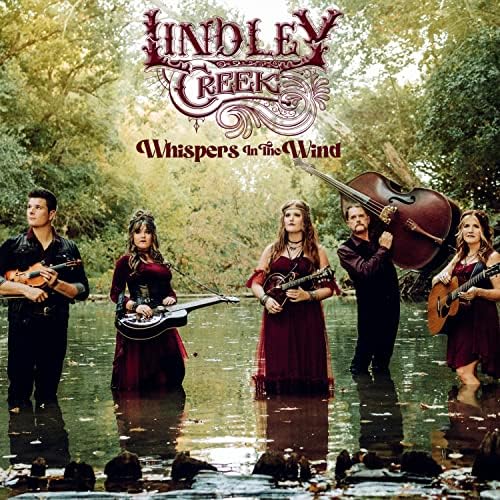If there’s one thing that has changed in folk music more than anything else in the last twenty-five years, it’s the lack of standards enjoyed by artists today versus historical eras. There’s not as much interest in making something tight and well-rounded as there is something that will turn heads and perhaps cause drama within a specific scene, but this isn’t true of Lindley Creek at all.
In Whispers in the Wind, their latest album, Lindley Creek gets back to the basics of what making a solid folk album used to consist of, and while their approach takes some from the old school quite openly, what they do with it is something firmly cemented in the here and now of roots music. Experimenting with the limits of the beat in works like “If This Road Could Talk” and “Too Bad You’re No Good,” this band doesn’t hesitate to challenge themselves with an arrangement, even if it means stepping outside of their creative comfort zone. The sonic depth of this material is definitely off the charts, but with a commanding presence from every musician here, it never sounds the least bit unruly.
Conventionality is not a part of the equation in “Spring is in the Air Again,” “We All Need Grace,” “Fare Thee Well,” and, of course, the hybrid “Breathe,” which I found to be the most endearing daringly experimental work on this LP. It isn’t that I think Lindley Creek wants to be rebels just for the sake of staying outsiders to an evolving mainstream’s increasingly diverse Americana community, but instead that they want to do things a little differently than everyone else is at the moment, mostly for the sake of figuring out just how far they can run with everything from a beat to a harmony.
The bruising push from the lower tones in “Empty” or “That Page Won’t Turn” serves as important a part as the joint attack from the vocal and the lead string element do in “Satisfied Mind,” and there’s never a moment where it feels like one player is overshadowing the others with any real prejudice. “I’m Still Here” and “Every Time a Train Goes By” present us with progressive influences I didn’t know Lindley Creek possessed, and if they’re elaborated on in a future release, they could form something quite conceptual to say the very least.
There’s still a lot more to be uncovered within the artistry of Lindley Creek, but Whispers in the Wind goes a long way toward giving us everything this band is capable of without overstating their presence in any given song. These are players who are not content to stick with the model that their peers and greatest heroes have been making the most of for the better part of the last half-century, and while they share some attributes with the classic folk revivalist movement, they care more about the present than they do anything in the past. Whispers in the Wind is bold, but likely not the wildest look we’re going to see from Lindley Creek.
Heather Savage

